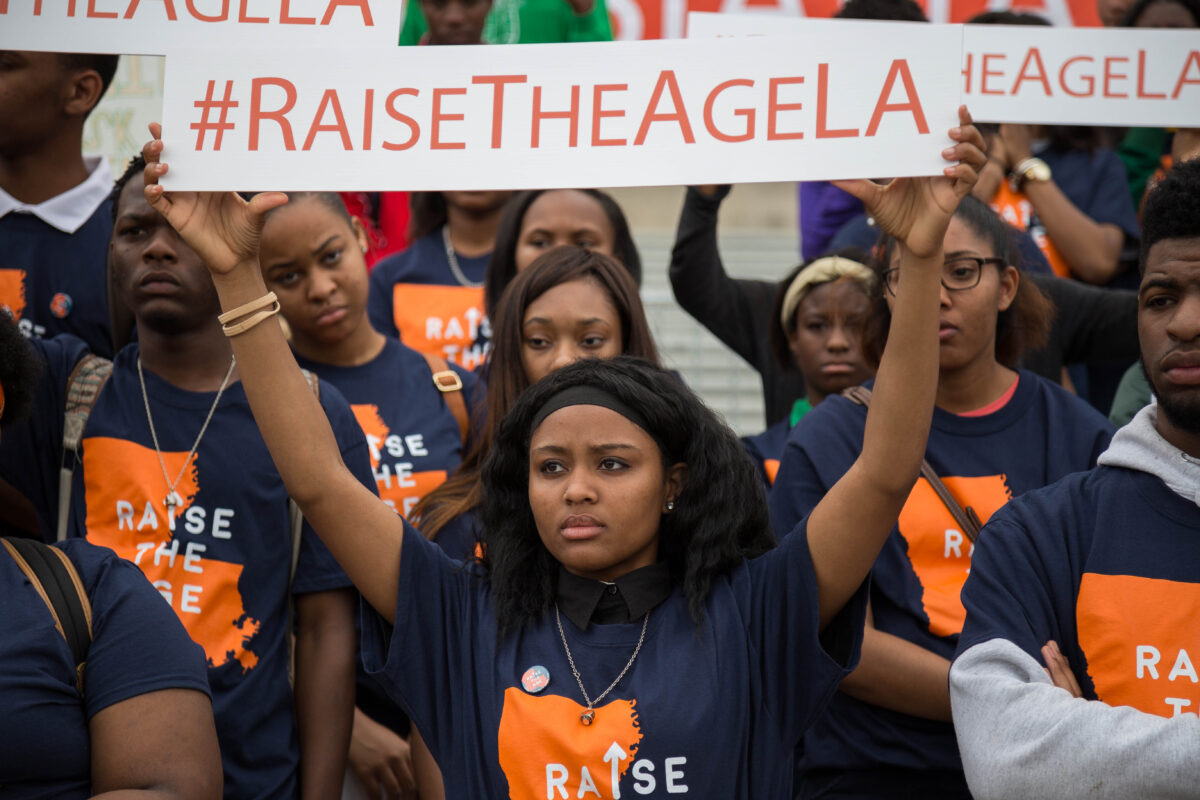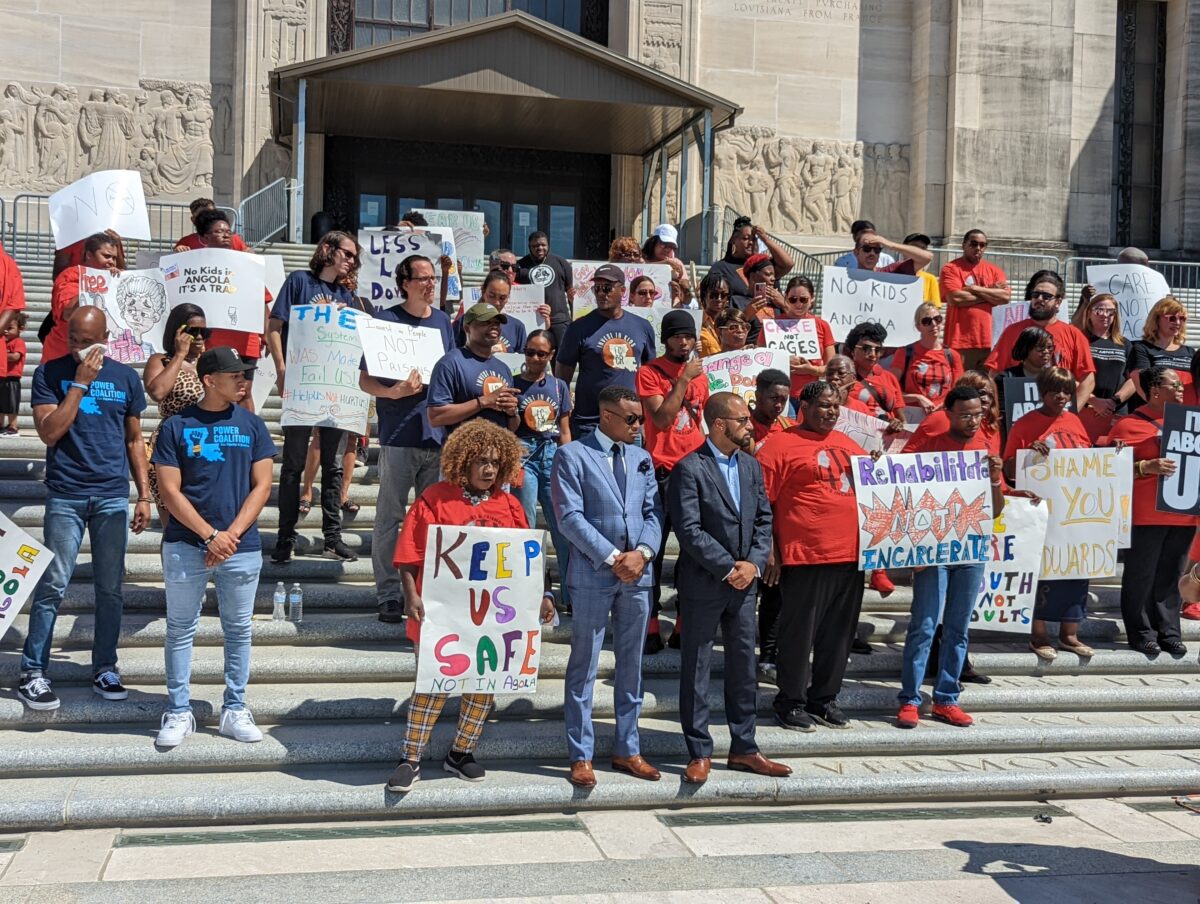LCCR’s fiscal year came to a close on June 30. Here’s a quick look at what your support helped accomplish.

LCCR attorneys defended the rights of 503 children (through 633 cases) in Orleans Parish courtrooms this past year, and we served an additional 149 children in East Baton Rouge. Meanwhile, our social workers and youth advocates connected our kids with the resources they need to grow up healthy and leave the legal system behind for good. Support from people like you helped:
243 children enroll in school
21 children secure new or improved special education supports (IEPs)
35 children defend their right to an education in school disciplinary hearings
262 children connect with jobs or job training programs
169 children connect with mentoring programs
128 children access care for mental health and substance use disorder
Collectively, these efforts are helping kids like Renisha, Jerome, Shawn, and Kentrell stay at home with family, remain in school without disruption, and see their prospects for success grow.
Over the past year, LCCR’s juvenile life without parole (JLWOP) team won re-sentencing hearings for seven clients who were originally sentenced as children to life without parole. In each, the clients were re-sentenced to life with the possibility of parole, offering them a chance at freedom after serving a minimum of 25 years. In fact, one client was just granted parole in July 2023 after having served 42 years in prison (since age 15). He and his mother now look forward to the next chapter in their lives.
Additionally, our JLWOP team is currently working to prevent four children at risk for JLWOP sentencing from being transferred to adult court. We’re striving to keep them in a juvenile system that’s largely better equipped to meet their educational and rehabilitation needs.
Notably, in our project’s five years, only one child represented by LCCR has been sentenced to life without parole, and just one adult represented by LCCR has been re-sentenced to LWOP. In a state that has previously sentenced more children to LWOP, per capita, than any other state in the nation, that remains a huge deal. We continue to meet our clients where they’re at and support them in securing the opportunity for a second chance.
The 2023 Louisiana legislative session was a rough one to say the least, as human rights were challenged in ways that failed to see people, including the children we serve, as human. Forty-five bills were filed this session targeting the rights of children and 109 were filed targeting the criminal legal system overall. Your support helped LCCR push back against the following bills:

HB208 and SB159 – Lower the Age Bill – VETOED
Both bills aimed to undo the landmark Raise the Age Law and make Louisiana the first state in the nation to return to the practice of placing all arrested 17-year-olds in adult jails by default. Notably, under the Raise the Age law, prosecutors still have the discretion to transfer kids to adult criminal court in the most serious of cases. But apparently that wasn’t enough for some legislators insistent that Louisiana resume treating all arrested 17-year-olds like adults (and rejoin just three other states that continue this practice). While HB208 died at the legislature, SB159 unfortunately passed. In its final form, it sought to jail all 17-year-olds arrested for any “crime of violence” (a very broad definition) with adults. Gov. Edwards promptly vetoed this needlessly harmful bill, preserving Raise the Age for at least another year. However, we anticipate another fight again next year.
HB321 – Making Juvenile Arrest Information Public – DIED
HB321 aimed to make juvenile information publicly available through a proposed new pilot program. The pilot would have placed the names of and charges against children who have been accused (not convicted) of crimes into an accessible online database. Interestingly, rather than piloting in smaller jurisdictions or statewide, the bill’s author specifically targeted it for the three areas with the state’s largest majority-Black populations: Orleans, East Baton Rouge, and Caddo Parish. Making juvenile arrest information publicly available doesn’t promote safety. Instead, it places arrested youth in danger of retaliation and vigilantism. Further, it creates new challenges for youth re-entering their communities. Online information is nearly impossible to remove, risking challenges to these children as they grow older and seek to obtain housing, employment, and educational opportunities. While HB321 passed the House, it ultimately died in the Senate. However, its author is already pledging to bring it back again next year.
New Laws and Resolutions that Actually ARE Good News
While the above bills were among the worst from a particularly bad session, there were some good bills and resolutions that we were pleased to see go through. ACT 354 now prevents art such as song lyrics, poetry, and journal entries from being used as evidence against children accused of crimes. ACT 276 removes the GED requirement from parole eligibility, which was a priority for our JLWOP team. SR98 now allows incarcerated persons, including children, to receive Medicaid. HR7 allows parents to virtually attend the award and graduation ceremonies of their incarcerated children. And HR270 creates a new task force to policies and commendations for appropriate education, rehabilitation, and parole of children.

During the summer of 2022, Gov. Edwards announced an unconscionable plan to imprison children in the former death row camp of the Louisiana State Penitentiary in Angola, one of the most notorious adult prisons in the entire country.
Working with a coalition of allies (Families & Friends of Louisiana’s Incarcerated Children, Ubuntu Village, ACLU of Louisiana), LCCR immediately began pushing back against this move by mounting a media campaign, which included op-eds from NBA star CJ McCollum and NFL stars Demario Davis and Malcom Jenkins. We rallied on the steps of the state Capitol. We supported a lawsuit to keep kids out of Angola. We also developed multiple alternative ideas to counter the proposed move, advocating directly with both Louisiana’s Office of Juvenile Justice (OJJ) and the Governor.
Despite these efforts, children began getting sent to Angola back in October. Unsurprisingly, the abuse that has become emblematic of OJJ facilities has crossed over to this new Angola facility. In January, two formerly incarcerated youth alleged in court filings that children in Angola have been pepper sprayed, held in solitary confinement, and regularly had aggressive run-ins with Department of Corrections guards. This after repeated assurances from the state that children in Angola would be safe and that OJJ wouldn’t make the same mistakes it made with its St. Martinville facility.
While the Angola facility houses a relatively small number of children, we remain deeply disturbed by the notion of housing any children there, and we are committed to continuing the fight until the very last child is moved out of there.
In August 2022, LCCR published Learning Interrupted: the Educational Crisis in Louisiana’s Juvenile Secure Care Facilities. This comprehensive report is the culmination of years’ worth of research and data analysis, as well as dozens of interviews with youth, their families, defense attorneys, and social workers. It highlights the grave inadequacies in the schools operated by OJJ, including abysmal academic results, poor communication between the multiple agencies responsible for educating children in juvenile prisons, and extensive staffing shortages that cause frequent closures and educational gaps. Among the report’s key findings:
Learning Interrupted offers numerous concrete steps for how to fix this dire situation. These include OJJ consulting with juvenile justice school experts, strengthening collaboration with the state’s Special School District, providing compensatory education for students who have lost instruction, and much more.
You can read the full Learning Interrupted report here. LCCR also hosted this panel discussion about educational deficiencies in the state’s juvenile prisons.

In August 2022, LCCR’s JLWOP Legal Representation Director, Kristen Rome, ascended to the role of Co-Executive Director.
Kristen now focuses primarily on LCCR’s external-facing work, including policy advocacy and communications. LCCR’s other Co-Executive Director, Aaron Clark-Rizzio, now focuses on the direct representation of clients.
This restructuring plan has strengthened LCCR’s core operations and increased our impact, positioning us to further our mission with the leadership necessary to sustain it. Further, this redesign prepares our organization for a new era, leading the way for our vision of a Louisiana where every child, no matter their race or class, is free to be a kid and supported in becoming a healthy adult.
Fiscal Year 2023 Financials:
Click here to see what your support made possible in FY 2022.